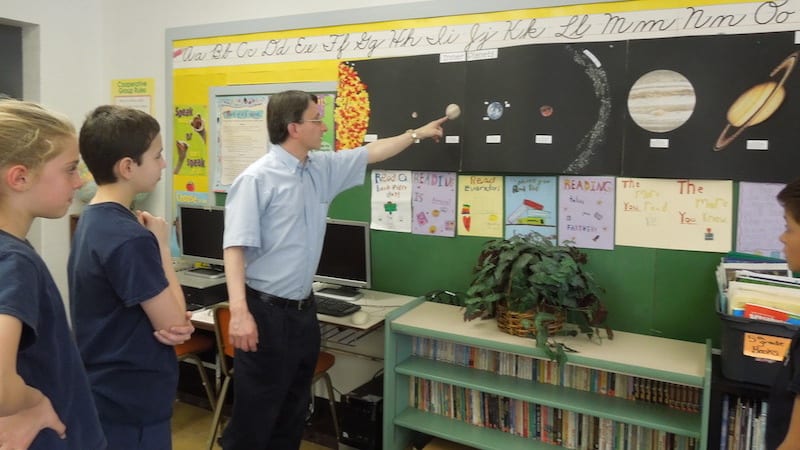I started teaching in the 1980s. The world of education has changed a lot since then. So have I. Here is just a sampling of my lessons learned as a teacher working in both public and private schools, and in three different states.
1. I’m more flexible.
When I was new to the profession, I was said to be “too rigid.” Maybe it was because that’s the way I was taught – by rigid teachers and fairly strict parents. Rules were meant to be followed, right? There’s always a punishment for an infraction, no? That’s what I thought.
Nowadays I see the beauty of flexibility (up to a point, anyway). Some examples: Don’t want to write about the journal prompt I just assigned? Come up with a better one and I’ll let you. Want me to rearrange my entire day’s schedule to switch the time of our special, or to accommodate an assembly speaker? No problem. The kids will learn the same subjects, just at a different time.
I think I’m flexible with a lot more things in the classroom now because I enjoy creativity, and there’s nothing more stifling to the creative spirit than a rule that is etched in stone.
2. I give my students more choices.
Kids love choices (almost as much as candy). It gives them ownership in their learning, their classroom, and their lives. I let them choose anything from writing and project assignments to what they’ll do for homework or extra credit to when we’ll schedule things during the school day. (“Would you like to do this now or later?”)
In our school, fifth is the highest grade, so they enjoy more responsibilities than the younger students. Getting to make choices is just another benefit of having grown and changed so much since starting out as little kindergarteners over five years ago. They appreciate any opportunity to prove how mature they are as the “big kids” of the school.
3. I praise more.
It doesn’t cost anything to say, “Good job” to a child who has just accomplished an objective. It takes only a few seconds to write a similar comment on a test paper. The sticker is not enough. A written comment from a teacher is gold to some kids and their parents. It means more and is longer lasting than any prize you can award them.
I still remember praise given to me from some of my own teachers, and that was many decades ago. If you feel proud of your kids, go ahead and tell them.
4. I don’t yell or punish as much.
In the first 10 or 15 years of my career I gave writing punishments and yelled at students a little too much, and a little too loudly. It took me a while to realize that it accomplished nothing, and damaged any kind of relationship I had built with students up to that point. It also affected my health in a negative way.
Today, I am calmer, more understanding, and able to talk to my students about how to make better choices. As a result, I feel more rejuvenated each day, ready to take on the next challenge that awaits me, and my students feel more relaxed and ready to learn.
5. I don’t sweat the small stuff (the big stuff, maybe, but not the small).
Teaching can be a very stressful profession. Worrying about every little thing won’t make it any easier. What if this happens? What if that happens? Those kinds of self-generated questions can lead to burn out, and students do not learn well from burnt-out teachers. I would not have made it through 29 years of teaching without this one.
6. I forgive myself when I make mistakes.
After all, everyone makes them. I tell my students it’s okay, and that they can learn from the mistakes that they make, so why should the same not apply to the teacher, as well? It’s also good to forgive yourself for maintaining heart and mental health.
7. I ask for help when I need it.
I used to think that if I approached anyone for assistance related to my classroom duties, it would make it seem like I was a failure. I didn’t want anyone to doubt that I was a competent teacher, so I often kept problems to myself. But in recent years I’ve found that other teachers might have the same questions that I do. Knowing that, it makes me and the person I am approaching feel as if we are in the same boat and willing to help each other. “Whoever finds out first should fill in the others,” one teacher said after telling me she didn’t know the answer to one of my questions. It turned out we both needed to know.
Better yet, other teachers often do have the answers that I need and are always happy to supply them. Getting those answers has made me a better teacher, which ultimately has helped my students as well as improved the quality of education in my classroom.
And after all, offering the best education possible is what our job as teachers is all about, right?
Join our Facebook group WeAreTeachers—First Years! to connect with other new teachers, and learn more about how you can navigate your classroom and life.

